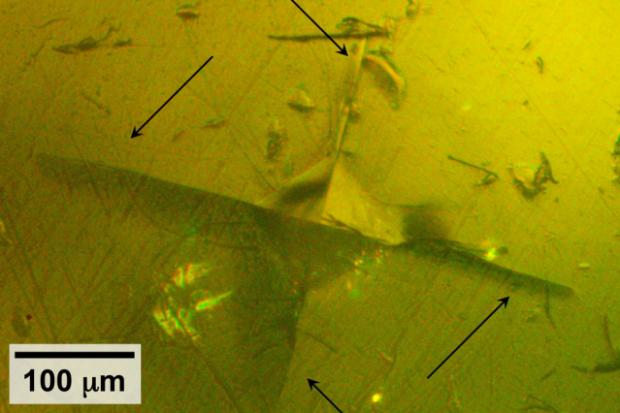
Breaking News
 Israel First Vs America First Conservatives
Israel First Vs America First Conservatives
 The COVID Vaccine DNA Bombshell They Tried to Hide | Exclusive with Dr. David Speicher
The COVID Vaccine DNA Bombshell They Tried to Hide | Exclusive with Dr. David Speicher
 Alarm Bells Going off EVERYWHERE, and Putin and China Smell Blood | Redacted w Clayton Morris
Alarm Bells Going off EVERYWHERE, and Putin and China Smell Blood | Redacted w Clayton Morris
 Ben Shapiro Joining CNN Exposes His REAL Scheme
Ben Shapiro Joining CNN Exposes His REAL Scheme
Top Tech News
 Goodbye, Cavities? Scientists Just Found a Way to Regrow Tooth Enamel
Goodbye, Cavities? Scientists Just Found a Way to Regrow Tooth Enamel
 Scientists Say They've Figured Out How to Transcribe Your Thoughts From an MRI Scan
Scientists Say They've Figured Out How to Transcribe Your Thoughts From an MRI Scan
 SanDisk stuffed 1 TB of storage into the smallest Type-C thumb drive ever
SanDisk stuffed 1 TB of storage into the smallest Type-C thumb drive ever
 Calling Dr. Grok. Can AI Do Better than Your Primary Physician?
Calling Dr. Grok. Can AI Do Better than Your Primary Physician?
 HUGE 32kWh LiFePO4 DIY Battery w/ 628Ah Cells! 90 Minute Build
HUGE 32kWh LiFePO4 DIY Battery w/ 628Ah Cells! 90 Minute Build
 What Has Bitcoin Become 17 Years After Satoshi Nakamoto Published The Whitepaper?
What Has Bitcoin Become 17 Years After Satoshi Nakamoto Published The Whitepaper?
 Japan just injected artificial blood into a human. No blood type needed. No refrigeration.
Japan just injected artificial blood into a human. No blood type needed. No refrigeration.
 The 6 Best LLM Tools To Run Models Locally
The 6 Best LLM Tools To Run Models Locally
 Testing My First Sodium-Ion Solar Battery
Testing My First Sodium-Ion Solar Battery
 A man once paralyzed from the waist down now stands on his own, not with machines or wires,...
A man once paralyzed from the waist down now stands on his own, not with machines or wires,...
Toward all-solid lithium batteries

But recent research has explored the possibility of all-solid-state batteries, in which the liquid (and potentially flammable) electrolyte would be replaced by a solid electrolyte, which could enhance the batteries' energy density and safety.
Now, for the first time, a team at MIT has probed the mechanical properties of a sulfide-based solid electrolyte material, to determine its mechanical performance when incorporated into batteries.
Lithium-ion batteries have provided a lightweight energy-storage solution that has enabled many of today's high-tech devices, from smartphones to electric cars. But substituting the conventional liquid electrolyte with a solid electrolyte in such batteries could have significant advantages. Such all-solid-state lithium-ion batteries could provide even greater energy storage ability, pound for pound, at the battery pack level. They may also virtually eliminate the risk of tiny, fingerlike metallic projections called dendrites that can grow through the electrolyte layer and lead to short-circuits.
"Batteries with components that are all solid are attractive options for performance and safety, but several challenges remain," Van Vliet says. In the lithium-ion batteries that dominate the market today, lithium ions pass through a liquid electrolyte to get from one electrode to the other while the battery is being charged, and then flow through in the opposite direction as it is being used.



